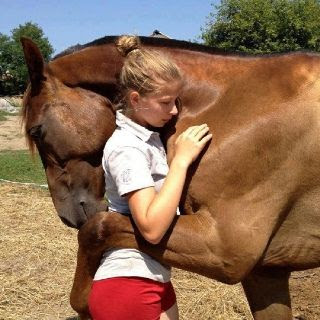 |
| Where do you work? Picture: expresswriters @ Pixabay.com |
Virginia Woolf famously said that what a woman writer needed to work was “a room of one’s own” and “£500 a year”. Of course, when she said that in 1928, women were not welcome in many of the institutions that were open to male writers, and £500 / $650 a year was a pretty hefty income. (It works out at around £30,000 / $37,500 in today’s money.)
Sadly, ninety years later many writers don’t earn much more than £500 a year. And that’s at the non-adjusted rate. Only a small fraction—a mere 5%—make in excess of £30k and even then they perhaps not do so with any great regularity.
Last month, the Royal Society of Literature published its own findings from a 2018 survey funded by the Author Licensing and Collecting Society into UK authors’ earnings. The report, called A Room of My Own, makes fascinating if sobering reading.
The RSL points out that although more than 184,000 books are published in the UK each year, and that sales of books and journals rose to £5.7 billion / $7.1 billion—not to mention all the other media which books give rise to—the majority of authors earn less than £10,000 / $12,400 a year. Considering the hours involved, that’s not even minimum wage.
But, for many of us, this is not simply a job. It’s an urge, an obsession, a compunction, and a catharsis. We write because not writing would be infinitely worse.
Anything else is a bonus.
The RSL findings identified the support a writer needs, in order of importance, as having a place to write, the support of their peers, emotional, and finally financial support.
 |
| Emotional support for foxcubs |
But when it came to the main challenges a writer faces at the start of their career, the lack of present or future income was the main stumbling block, followed by a lack of time, lack of confidence in their abilities, or lack of information about any financial aid—grants, bursaries, etc—available to them were noted.
I remind myself on a regular basis just how lucky I am to have made my living from words since the 1980s. To begin with, I wrote non-fiction as a full-time freelance photo-journalist. This introduced me to the concept of no-work-no-eat (always good motivation) although it also made starting work on the first of my Charlie Fox novels something of a busman’s holiday.
 |
| People have apparently been badly mauled by thinking pandas are as cuddly as they look and climbing into enclosures to give them a hug. |
I carved out the time to write the early books by setting my alarm earlier in the morning, first by an hour, then two. It’s amazing how much you can get done when you’re forced to sit quietly for fear of waking the rest of the house and tap away at your keyboard.
I date myself horribly by admitting this was pre-Internet, so there was little else to distract me apart from the view from the window in summer, or the gradual breaking of dawn in winter…
Where I wrote was a moveable feast. Yes, I had a desk next to a radiator (for winter writing) and a window (for summer writing). But I also wrote in the car while travelling, or scribbled notes if it wasn’t feasible to get out a laptop. I still carry a notebook and pencil everywhere I go, just in case I find I have a few minutes to spare or inspiration strikes.
I’ve written on trains, planes, ferries, yachts, in cafés, garage waiting rooms, propped on the sofa with a cat on my legs, in bed, in the garden. And if it’s noisy, I put in headphones and crank the music, or I wear custom earplugs.
 |
| Possibly slightly safer to hug than a panda. (But only possibly.) |
The moral of this story is, if you really want to write, you will find the time. If there’s a story inside you that’s bursting to get out, you will beg, steal, borrow, or simply make the time.
The biggest time-suck of all has to be that haunted fish tank in the corner of the living room. It’s just too easy to switch on the TV while you’re having dinner and to end up slumped in front of a programme you wouldn’t have set an alarm for, but you end up watching anyway. And the next thing you know, it’s time for bed.
 |
| Hugging lions is likely to end in tears, also. Although, whatever you do, do NOT poke one in the ear. (Especially using a stick with an 'orse's 'ead 'andle.) |
But by far the biggest problem for many writers, I think, is getting emotional support and having confidence in their abilities. I worry constantly about the quality of what I write. In fact, in some ways, I get the feeling that the day I stop worrying about it will be the day I really should start to worry.
Hearing from readers has always been possible for writers, although at one time a fan had to take the trouble to write to their favourite author c/o their publisher, who would then forward the letter on. Now, it’s almost instantaneous, via email, blogs, websites, and social media.
 |
| Horses are also not known for their ability to hug, although this one is doing its best. |
Even so, getting a positive message from a reader who has absorbed the motley assortment of characters I’ve imagined, sweated over and wrestled into submission on the page, is a wondrous experience, even now. It reminds me, once again, of my good fortune.
I am reminded of this more strongly today, as the Advance Reader Copies of the new Charlie Fox book, BAD TURN, went out to my Advance Reader Team on Friday. By Saturday morning, the first of them had not only read and enjoyed the book but had posted on goodreads to say so.
The support of readers like that is what makes many of us keep scribbling well into the small hours.
So, if you’ve read a book and thought it was terrific, I urge you to let that writer know. Either by sending them an email, posting on social media, leaving a brief review, or even all three. It’s like you’re giving them a big virtual hug. And we all need those occasionally, don’t we?
 |
| These days, you can even buy a chair that will hug you... |
This week’s Word of the Week is deadline, which has come to mean the date by which a task must be performed. It is thought to originate in the 1860s during the American Civil War. Then it referred to the line drawn around a prison camp, past which no prisoner could pass without risking being shot. Some of the earliest uses of deadline in this context are in prisoner-of-war diaries from 1863 although it wasn’t until the Andersonville prison camp was established by the Confederates in 1864. The camp was notorious for the harsh conditions and the Union soldiers kept there knew if they crossed the light railing twenty feet inside the fence they had crossed the ‘dead line’.
















I guess it comes down to genius being 10% inspiration and 90% perspiration, occasionally relieved by a hug!
ReplyDeleteWho was it who said something along the lines of "Luck is what counts, but the harder I work, the luckier I seem to be..." ?
DeleteFree hugs are available at our house to anyone passing through. We reserve the right to refuse service to those who irritate us. Our hugs come with a no-deadline guarantee.
ReplyDeleteThanks, EvKa. Don't look out of the window, but writers everywhere may be forming an orderly line outside your front door right now...
DeleteThe issues for writers are, of course, the same in the US, but the median income for published writers of fiction is even lower, just under $9K per year. And that number includes the income of James Patterson, Nora Roberts, and Dan Brown, so lots are making next to nothing. But for me as for many, I would not, could not stop if someone held a gun to my head. And fortunately, crime fiction writing comes with a huggable and affectionate tribe. Lucky Us!
ReplyDeleteAnd we have JK Rowling in that mix somewhere, Annamaria, so the same applies. I agree about not being able to stop, though. There have been many times when dealing with the publishing industry has seemed like too much over the course of my career, but stopping has always seemed by far the worse option!
DeleteI, too, can write anywhere but don't need headphones if there is a noise. I am able to tune it out. With respect to support, mystery writers are unequalled in what they give and share. As are friends and family. I have been very fortunate.
ReplyDeleteYou describe our lives so well, Zoë. As I've long said, "Writing is a lousy to make a living, but a wonderful way to make a life."
ReplyDeleteAnd on that subject--especially the cuddly supportive nature of our colleagues--I can't wait to read BAD TURN! Congratulations.